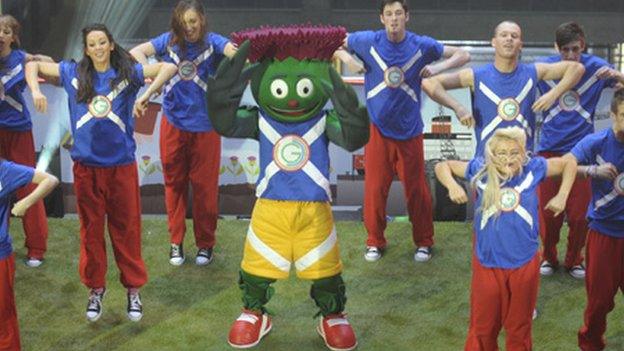Glasgow 2014: What is the Queen's Baton Relay?
- Published
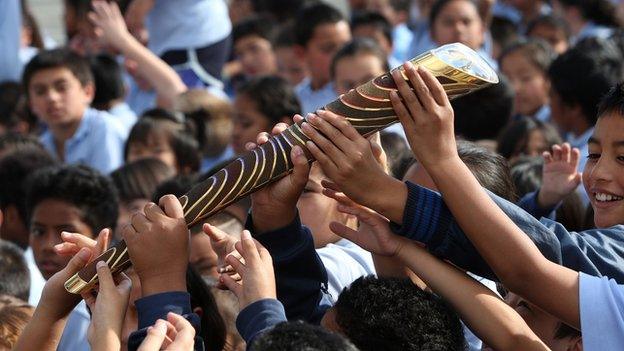
Pupils of Chapel Downs Primary School, Auckland, New Zealand, pass the 2010 baton around
The route the Queen's Baton Relay will take around the world has been unveiled by Commonwealth Games organisers.
The international baton relay aims to demonstrate the unity and diversity of the Commonwealth of Nations.
The Commonwealth Games begins in Glasgow on 23 July 2014.
What is the Queen's baton relay?
It is the Commonwealth Games's version of the Olympic Torch Relay.
The Commonwealth Games may come second to the Olympics when it comes to the world's biggest multi-sports events, but the baton relay is actually far more extensive than the torch relay.
The International Olympic Committee decided to scrap the international element of its torch relay, external after the protests over China's human rights record, which dogged the Beijing flame.
The torch for the London Olympics toured the UK extensively but was brought to Britain straight from Athens.
In contrast, the Commonwealth baton relay will start from Buckingham Palace on 9 October before heading to each of the countries which are sending teams to the games in Glasgow next year.
Its first international port-of-call will be India on 11 October.
The baton will then make its journey from Delhi - which was the host of the 2010 Games - along a route detailed in the map above.
The relay will culminate in a 40-day tour of Scotland in the summer of 2014.
The eight-month relay will cover 190,000 km before it reaches Scotland in the weeks before the 20th games, which begin on 23 July 2014.
The design of the Glasgow baton and the route around the UK will be released later in the year.
How many countries will it visit?
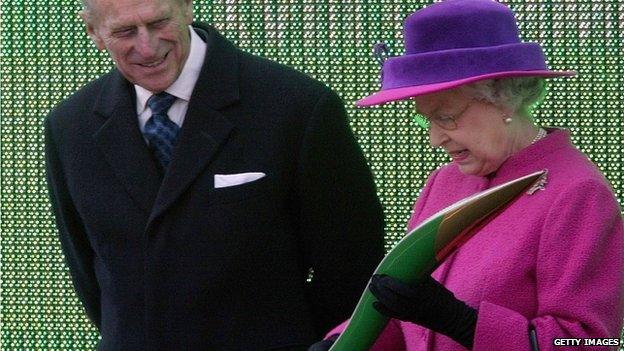
The Queen and the Duke of Edinburgh examine the baton at the launch of the Melbourne 2006 relay
It depends what you call a country, but there are 70 "nations and territories" who are scheduled to be represented when the Glasgow games get under way.
Are there 71 countries in the Commonwealth?
No, there are 53 members of the Commonwealth of Nations. The Gambia has recently withdrawn itself from the Commonwealth.
But 70 teams participate in the Commonwealth Games because a number of British overseas territories, Crown dependencies, and island states compete under their own flag.
The UK nations - Scotland, England, Wales and Northern Ireland - compete separately in the Commonwealth Games. As do the smaller home territories such as Jersey, Guernsey and the Isle of Man.
Who else is taking part in the Commonwealth Games?
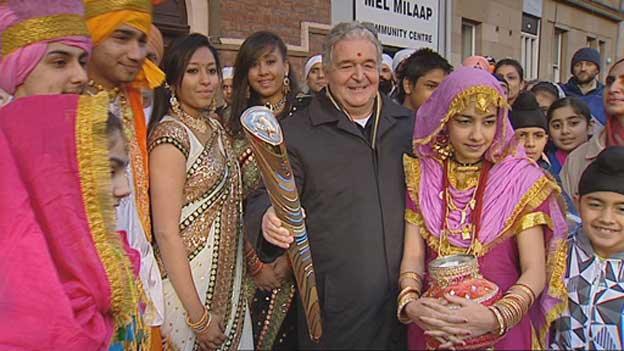
The Delhi baton visited Glasgow in November 2009
The big Commonwealth countries such as India, Pakistan, Bangladesh, Nigeria, South Africa, Malaysia, Australia, Kenya, Ghana, Jamaica and Canada will be there.
And then there are smaller ones such as Vanuatu, the Solomon Islands, St Kitts and Nevis and the Falklands Islands.
Not to mention Tuvalu and Nauru, which both struggle to have populations of 10,000 people.
Peter Murphy from the Commonwealth Games Federation (CGF) says: "The baton is transported by every method of transport from quad bike to camel.
"It is the longest relay and the biggest logistical event. I can't think of anything that comes close for the number of countries it visits and the different modes of propulsion.
"When it goes to St Helena it takes a mail ship because that is the only way to get there. And places such as Nauru are some of the most isolated places in the world."
See below for a full list.
What happens with the relay?
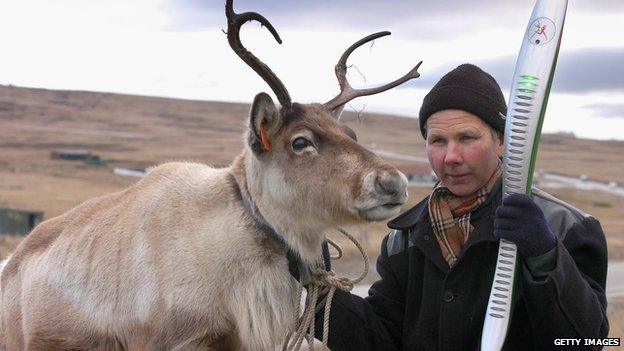
Mike Butcher with his reindeer 'Gordy' with the 2006 baton in the Falkland Islands
The Queen, as head of the Commonwealth, sends the baton on its way carrying a message inside it.
It will visit 70 nations and territories of the Commonwealth before returning to Scotland for an extensive tour.
In 2010, it spent 100 days touring the 28 states of India before it arrived at the opening ceremony in Delhi.
The final relay runner hands the baton back to the Queen at the opening ceremony.
The Queen then reads aloud the hidden message and officially declares the Games open.
Who has been the final relay runner in the past?
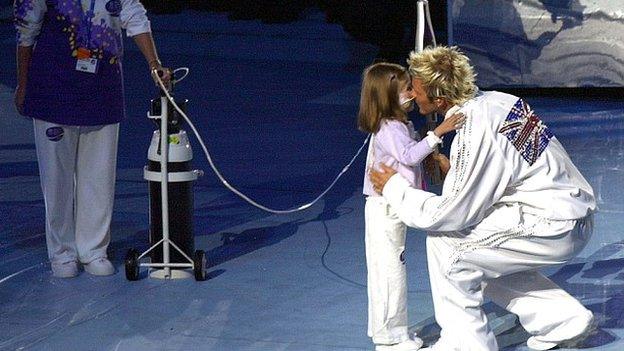
David Beckham was the final relay runner in 2002, with Kirsty Howard
The honour of being the final relay runner in 1986, when the Games was held in Edinburgh, was given to sprinter Allan Wells, who had won gold at the Moscow Olympics six years earlier.
In 2002, in Manchester, footballer David Beckham ran the final leg with Kirsty Howard, a young girl who had been born with a heart defect and was raising money for a hospice.
When did the baton relay tradition begin?
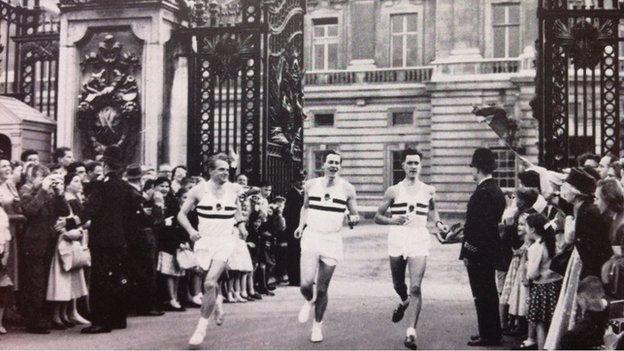
The first baton relay in 1958. L-R Chris Brasher, Roger Bannister (with baton) and Chris Chataway at Buckingham Palace.
It was introduced at the 1958 British Empire and Commonwealth Games in Cardiff.
But before 1998, the relay would only travel through England and the host nation.
By 2002, in Manchester, it was covering 100,000km and visiting 23 nations.
Melbourne 2006 was the first baton relay to visit all the nations which sent teams to the Games.
The Delhi relay in 2010 continued this.
Is there only one baton or thousands like the Olympic torch?
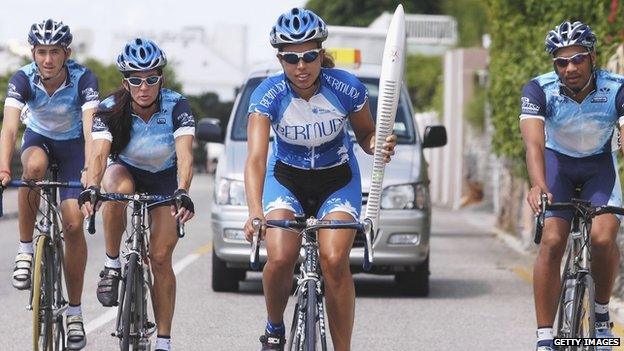
Ashley Robinson leads fellow members of Bermuda Cycling Association carrying the Melbourne baton
There is only one baton so it has to be quite "robust", says Peter Murphy of the CGF.
He says the Olympic flame is passed from torch to torch, so there can be an unlimited number of them.
"It is quite tricky with baton," he says. "Because the Queen puts a message in the baton, it has to be the same one which is relayed from runner to runner.
"By the end is sometimes quite battered because it is bound to get dropped a few times."
How did the Commonwealth Games come about?
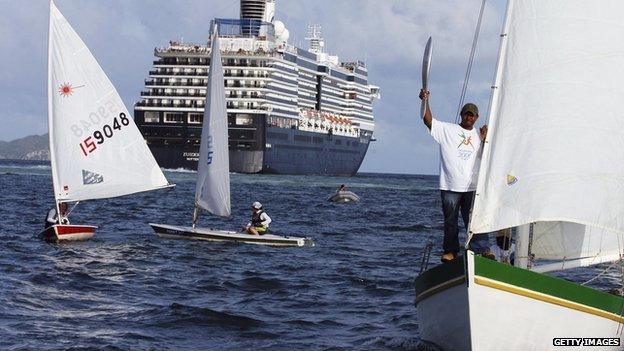
The 2006 baton off the British Virgin Islands
It was first held in 1930 as the British Empire Games.
The event has taken place every four years since 1950 and changed its name to the British Empire and Commonwealth Games in 1954.
By the time it was held in Edinburgh in 1970, it was known as the British Commonwealth Games.
Glasgow 2014 will be the 20th games.
It will see 4,500 athletes compete for 261 medals in 17 sports, held in 14 venues around Glasgow and beyond.
Hampden Stadium in Glasgow will be used for the track and field events, with the Emirates arena being used for badminton and the Sir Chris Hoy Velodrome for cycling.
The venues at the SECC, including the new Hydro arena, will play host to gymnastics, boxing, judo, wrestling, weightlifting and netball.
Squash and table tennis will take place in Scotstoun, swimming at Tollcross and lawn bowls at Kelvingrove.
Ibrox stadium will be used for the rugby sevens and Celtic Park will host the opening ceremony.
Outside Glasgow, the Royal Commonwealth Pool in Edinburgh will host the diving, the Barry Buddon Centre in Angus will be the venue for the shooting and the triathlon will take place at Strathclyde Country Park in Lanarkshire.
Which countries are taking part?
Africa: Botswana; Cameroon; Ghana; Kenya; Lesotho; Malawi; Mauritius; Mozambique; Namibia; Nigeria; Rwanda; Seychelles; Sierra Leone; South Africa; Swaziland; Uganda; United Republic of Tanzania and Zambia
Americas: Belize; Bermuda; Canada; Falkland Islands; Guyana; St. Helena
Asia: Bangladesh; Brunei Darussalam; India; Malaysia; Maldives; Pakistan; Singapore; Sri Lanka
Caribbean: Anguilla; Antigua & Barbuda; The Bahamas; Barbados; British Virgin Islands; Cayman Islands; Dominica; Grenada; Jamaica; Montserrat; St. Kitts & Nevis; St. Lucia; St. Vincent & The Grenadines; Trinidad & Tobago; Turks & Caicos
Europe: Cyprus; England; Gibraltar; Guernsey; Isle of Man; Jersey; Malta; Northern Ireland; Scotland; Wales
Oceania: Australia; Cook Islands; Kiribati; Nauru; New Zealand; Niue; Norfolk Island; Papua New Guinea; Samoa; Solomon Islands; Tonga; Tuvalu; Vanuatu
- Published18 July 2014
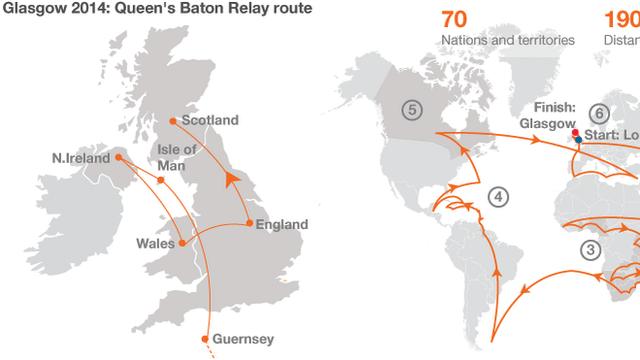
- Published11 March 2013
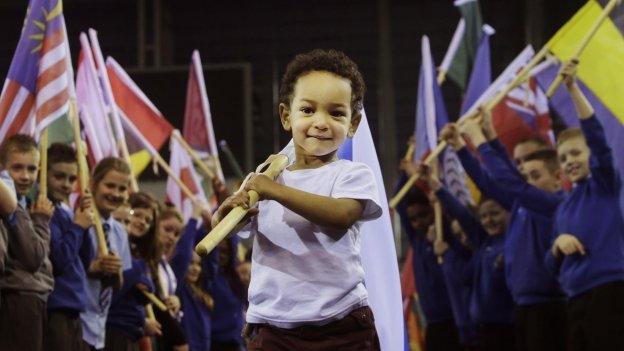
- Published10 March 2013
- Published7 March 2013
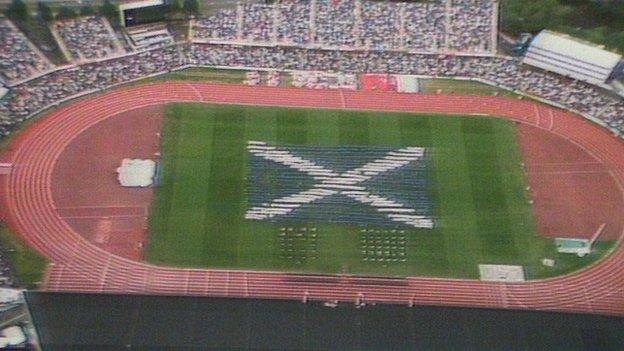
- Published1 March 2013
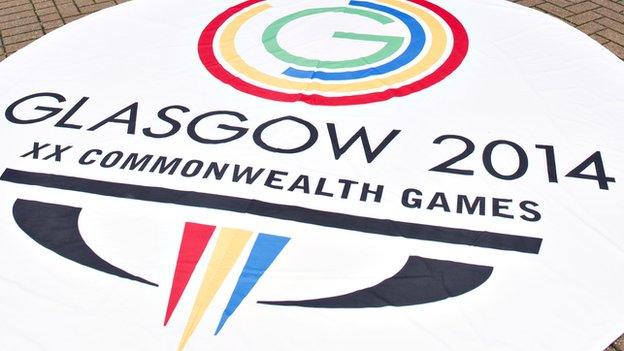
- Published20 September 2012
